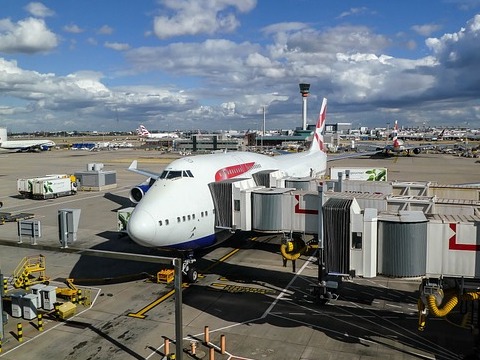17th July, 2023
Aviation reports by the industry and Government almost always begin with a statement about the supposed economic benefits of air travel. But up-to-date, independent evidence to substantiate these claims has been lacking. Old statistics, when repeated regularly enough, are prone to being accepted without further question.
Economic arguments are often used to justify an increase in noise and emissions, especially when it comes to airport expansion plans. With 2023 bringing a fresh round of airport applications to increase capacity, the Aviation Environment Trust provided funding for the New Economics Foundation to analyse whether these claims can be substantiated.
NEF’s report, released today, is the first comprehensive analysis of the economic costs and benefits of the UK air travel sector since the government published the Aviation Policy Framework a decade ago. It was peer-reviewed by the respected economist John Siraut, and casts doubt on many of the aviation industry’s key claims.
Analysis shows the boom in air travel since 2015 has failed to increase UK productivity or GDP growth, while business use of air travel – a key argument for expansion – has declined by 50% since 2013. Similarly, air travellers spend £32 billion more abroad than foreign travellers spend when visiting the UK. NEF argues this compounds regional inequality and damages the domestic tourism sector.
Job creation could compensate for some of these impacts, but even before the pandemic, at a time of record passenger numbers, jobs in the air transport sector had declined since 2007. In fact, NEF’s assessment shows that the sector is one of the poorest job creators per pound of revenue, with wages lower than they were in 2006.
The Government’s Jet Zero strategy aims to deliver a net zero emissions air travel sector by 2050, but allows for unlimited growth in flying. It forecasts over 200 million more passengers a year by 2050 and at least nine airports across the UK have permission or are currently attempting to expand. There have been numerous studies questioning whether the aviation industry will be able to meet its net zero goals without reducing growth in air traffic and the Climate Change Committee has argued that there should be no further airport expansions in the UK until the Government has developed a ‘capacity management framework’.
The NEF report recommends that the Government pause all growth in air travel, including airport expansions, until it has conducted a comprehensive, independent review of the economic evidence of expanding the UK’s air travel sector, and the compatibility of air transport growth with policies on climate change, levelling-up, and domestic tourism.
Dr Alex Chapman, senior researcher at the New Economics Foundation (NEF), said:
“For years, this government has let the air travel industry balloon in size, based on dangerously outdated claims that it is boosting the UK’s economy. The reality is declining business air travel, declining wages for air travel workers, declining job numbers, and declining domestic tourism spending in the UK. And that’s before you consider the rise in noise, air pollution and dangerous emissions driven by UK airports. So who exactly is benefitting from ever more air travel? You needn’t look much further than the highly paid executives, the private shareholders, and the wealthy minority of ultra-frequent flyers.”
Cait Hewitt, Policy Director at the Aviation Environment Federation, said:
“The question of whether or not airports should expand is often assumed to be about balancing environmental harms against economic benefits. This new analysis suggests we should think again; while flying definitely causes harm in terms of noise and emissions, it’s uncertain if it actually brings any economic benefits. Obviously, people benefit from going on holiday, but policies that support British tourism and leisure – rather than increasing travel abroad – would be good for the UK economy as well as the climate.”
Read the full report here:
